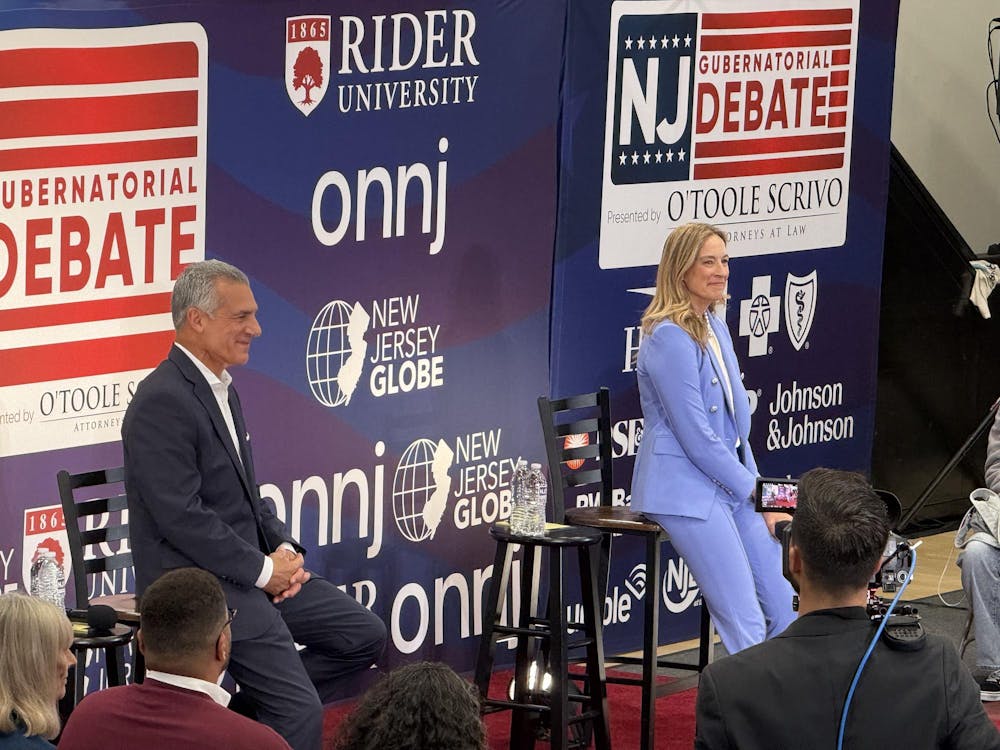With Tuesday, Nov. 4 marking election day, ballots are being mailed, decisions weighed, and party organizers are making their final pushes for votes in what appears to be a tight race between Democrat candidate Mikie Sherrill and Republican candidate Jack Ciattarelli.
In the week leading up to the New Jersey gubernatorial election, The Daily Princetonian spoke with Princeton professors about their predictions for the election’s outcome and its implications for the University.
“It seems as of now that Sherrill’s in a good position to win,” Professor of History and Public Affairs Julian E. Zelizer told the ‘Prince.’ However, he added that “it’s close enough — at least from some polls — that I’m not sure, but she seems to be in a pretty good position to win.”
Other professors echoed the sense that the gubernatorial contest remains close, but predicted a narrow Democratic victory.
“It seems to me that this year’s race for NJ governor is much closer than the race in 2021,” Edward Freeland, Executive Director of the Princeton University Survey Research Center, wrote. In 2021, incumbent Gov. Phil Murphy defeated Ciattarelli by a margin of roughly three percent.
Freeland pointed to the 15 most recent polls from the New York Times’ table, which show an average margin of five percent for Sherrill. As many polls are conducted via texts sent to mobile phones, he expects the race to be even tighter than polls indicate, as “the polls may be missing working-class voters who either don’t respond to text prompts or [don’t] have a smartphone.” Freeland predicts a Democratic victory by just one percent.
Freeland added that Ciattarelli’s experience and familiarity may explain his popularity in the Garden State.
“Ciattarelli has built on his experience from campaigning in 2021,” Freeland wrote. “This has helped him hone his message for 2025 and has given him statewide recognizability, versus Sherrill, who, until this year, wasn’t well known outside of her congressional district.”

Neuroscience professor Sam Wang, who runs the Princeton Gerrymandering Project, is more confident in a decisive Democratic win.
“New Jersey is a Democratic state, the Republican Party is quite unpopular nationwide, and opinion polls provide independent confirmation,” Wang wrote to the ‘Prince.’ “So the conditions point mainly in one direction.”
In light of the Trump administration’s targeting of Democratic blue states, the professors said that the results of this election will have significant implications for New Jersey and the University.
The New Jersey governor has more executive power than other state governors, including oversight of immigration policy and appointment of the state Attorney General. “With the federal government stepping away from its role in enforcing and even obeying the law, state-level governance takes on extreme significance,” Wang wrote.

The outcome of the election may be felt by the University and the broader Princeton area as well. Already, dozens of people in Princeton have been detained during ICE raids, and Freeland expects that a Republican victory will prompt “greater state cooperation with ICE immigration enforcement.”
The results of this election, professors said, may also either expedite or obstruct the steps that the federal government is taking to target the University.
“Right now, we’re at a moment politically where states are playing a big role in shaping some of higher education, given there’s a lot of pressure and conflict from Washington,” Zelizer said. “So, I think governors are emerging as important sources — either protecting universities, starting conversations and changes that might happen, and even providing funding and support.”
Whomever holds New Jersey’s governorship also becomes a member of Princeton’s Board of Trustees, which helps confirm faculty appointments, determine criteria for admission to the university, and develop the budget. Murphy has enjoyed a particularly close relationship with Nassau Hall, helping establish the New Jersey AI Hub in collaboration with the University, Microsoft, and cloud computing company CoreWeave.
However, Professor of Sociology and Public Affairs Paul Starr cautioned against drawing “big conclusions” from this election, which some political analysts are eyeing as a test of whether the state’s rightward shift will endure. The race has also been closely watched as one of two off-year contests nationwide where voters can weigh in on Trump’s second term.
“Voters in northern New Jersey watch, listen to, and read New York City media, and voters in southern New Jersey watch, listen to, and read Philadelphia media,” Starr wrote to the ‘Prince,’ noting that the lack of a “media capital” in the state might lead New Jersey residents to be less informed about their state politics.
“In addition, this election is in an off year, without a presidential election or congressional races to draw people to vote,” Starr wrote. “So, you have a low-information electorate and likely low turnout. These features make it difficult to draw big conclusions from whatever happens.”
As the final day of early voting concluded on Sunday, preliminary reports show a turnout of over 1 million, about 30 percent higher than the 2021 gubernatorial race. The gubernatorial election will take place on Nov. 4, with the winner scheduled to be sworn in on Jan. 20, 2026.
Sena Chang is a senior News writer and Features contributor for the ‘Prince.’ She typically covers town topics and campus unions. She can be reached at sc3046[at]princeton.edu.
Christine Woods is a News and Archives contributor for the ‘Prince.’ She is from New York City and can be reached at cw0453@princeton.edu.
Please send any corrections to corrections[at]dailyprincetonian.com.
Editor’s note: This piece has been updated to clarify the role of the Board of Trustees with regards to appointing faculty members.








